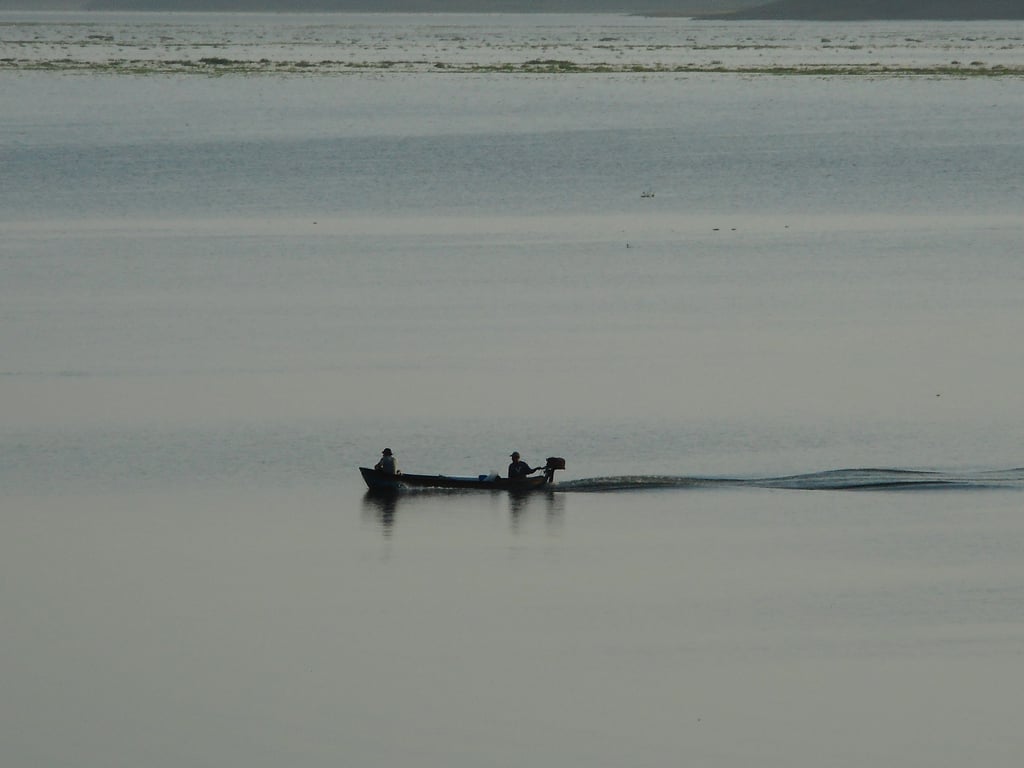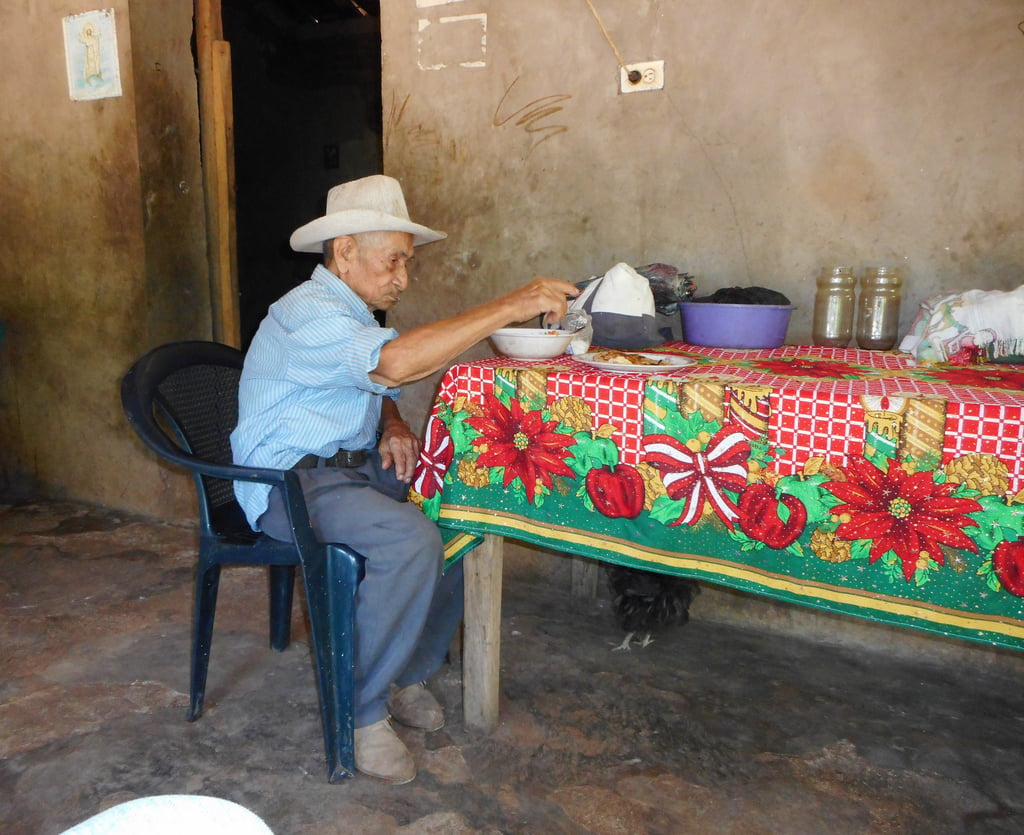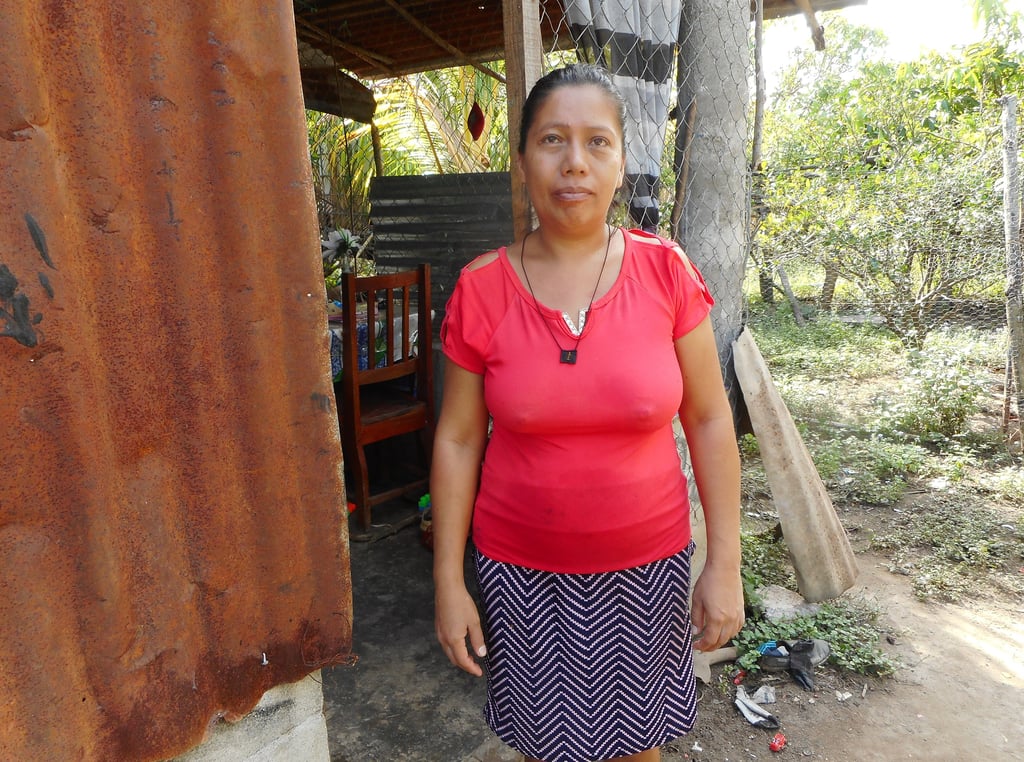(CN) — So many kinds of street sales, which is what the unemployed must do to survive …
Find something to sell, if only for $5 a day...
Young, athletic folks jump in and out of moving buses with bags: a dollar’s worth of tomatoes, onions, green peppers, toilet paper …
Homemade rums and vodkas are peddled by older guys who chant more softly than the legal vendors, and walk the neighborhoods instead of the main drag …

A team of Guatemalan Indians walks through town to sell kitchen cabinets and tables door to door. Athletic young men and women carry the furniture on their backs to your door and ask for an offer ...
Mostly we are offered tamales, limes, and cress, for a spicy salad ... or fresh cuajada —cheese curds
In the capital, San Salvador, things are worse.
Out in the provinces, we have volcanoes and volcanic soil and everything grows …
rich maroon soil devoted almost entirely to sugar cane rather than food. Sugar is cash ... For those lucky enough to own a plot of land, the company sends a check after the harvest ...
The landless have grim harvest jobs for six months; if they can save rather than drink cheap liquor they can support a family … barely.

Selling bread in the early morning from a big basket on the back of a motorbike can bring in $7 a day.
San Salvador is a giant traffic jam … no one goes there unless absolutely necessary … very few even go halfway.
Yet things are getting better, rather quickly, though they were unimaginably bad not so long ago.
Gang gunfights with other gangs and the police ... 25-30 homicides a day ... mafia-style extortion of all businesses and even government agencies ... political parties on the phony left and extreme right paying thousands of dollars a day to the gangs for votes …
Assault guns sold to the gangs by legal gun stores ... uninvestigated femicides ... unpardonable pockets of squalor.
Talked on video phone with an old friend who sold bags of candy on the buses while they were loading, before she escaped to Charlotte, N.C., with her 4-year-old, somehow. Her daughter is in kindergarten; she has a job in a big bakery. Her big sister was shot in the head for not having a dollar to pay a gang member for a one-day loan. She was nostalgic, but glad to have had such good luck.
Thanks to her remittances, her family here has moved into a house without a dirt floor and with a toilet.
The FMLN is long gone in the areas where they fought the army and lost, but were given land and money to lay down their arms after the peace accords. If the FMLN had a stronghold during the 1980-1992 civil war it was Suchitoto, an old Mayan town on the Lempa River.
In the shadow of the Guazapa volcanoes the guerrillas held thousands of acres, until the United States brought in the Vietnam “strategy” of scorched earth. They even called it Operation Phoenix, just like in Vietnam.
The United States even bombed Catholic churches: After all, it was common knowledge that some priests accepted and even promoted armed struggle. Among them was Archbishop Oscar Arnulfo Romero, now a Catholic saint, who was assassinated while saying Mass on March 24, 1980, a day that lives in the minds of El Salvador’s 6 million people as surely as Nov. 22, 1963 lives in minds in the United States. He was killed by an assassin on the order of death squad leader Roberto D’aubuisson, who then had the assassin assassinated on a soccer field. In February this year D’auBuisson’s son, Roberto D’auBuisson Jr., lost his bid for re-election as mayor of Santa Tecla, a sprawling suburb of 140,000 southwest of San Salvador, in an electoral tidal wave that gave the country’s young president, Nayib Bukele, and his Nuevas Ideas party, control of the country’s unicameral legislature.

This new chapter El Salvador’s history has captivated the country. Before the February elections, Bukele, though he was president, had no seats in the Salvadoran congress. He founded Nuevas Ideas after being kicked out of the FMLN for railing against its corruption.
In February this year, Nuevas Ideas candidates won 56 of the 84 seats in the national legislature — to ARENA’s 14, and the FMLN’s 4.
Bukele is wildly popular in El Salvador and throughout Latin America, though he has come under withering attack in U.S. media, as a “socialist” or worse, though before he entered politics he was head of El Salvador’s Yamaha franchise — strange business for a socialist.
Bukele formed a new left party and took power without a gunshot or a casualty. But Washington is not happy, comparing El Salvador to Cuba and Venezuela, which, like El Salvador, has no US ambassador.
When it comes to El Salvador, President Joe Biden appears to be on the same page as the extreme right in Latin America and the Republican Party.
Here in Cuscatlán, not so far from Guazapa (a Mayan word meaning Sleeping Lady), Nuevas Ideas is supported by a majority of voters in nearly every village and hamlet. People here have repudiated both the right-wing ARENA, the party of the death squads, and the corrupt, and now center-right FMLN.
No wonder the powers that be — or were — including the United States — have it in for Bukele and his new party. So far as we can tell, so far, Bukele owes his newfound power to no one but his country’s voters.

Subscribe to our columns
Want new op-eds sent directly to your inbox? Subscribe below!












